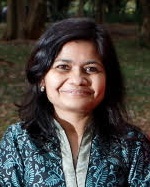Healthy diet, lifestyle and meditation can help to keep Alzheimer’s at bay
Alzheimer’s disease which is popularly associated with forgetfulness is the most common type of dementia
Post by Rising Kashmir on Wednesday, September 21, 2022

WORLD ALZHEIMER’S DAY
KAVITA CHOWDHURY
As the world celebrates World Alzheimer’s Day tomorrow (September 21),it is vital to understand why we here in India need greater awareness about this disease that most commonly afflicts the elderly. Alzheimer’s disease which is popularly associated with forgetfulness is the most common type of dementia. And India is on the cusp of a dementia epidemic with dementia patients projected to spike from the 44 lakh at present to over one crore by 2050. Incidentally, this surge can be ascribed to the growth in our geriatric population as India moves closer to becoming the world’s most populous country, surpassing even China.
In its bid to create awareness and advocacy about the disease, the Alzheimer's and Related Disorders Society of India (ARDSI) has been doing seminal work across the country. The Calcutta chapter of ARDSI recently held a daylong seminar to educate, dispel mistaken notions about the disease and interacted with dementia patients and their caregivers.
It must be emphasised repeatedly that Alzheimer’s and dementia is a neurological disorder and is not a mental disease as per the common perception. Therefore, instead of being embarrassed about a dementia patient in the family, there is need for greater societal acceptance of it which would help in better caregiving for such patients.
Neurologist Dr Amitabha Ghosh cautions, that there is no cure or medicine till date for Alzheimer’s and therefore it is important to take steps to delay the onset of the disease. Ghosh who is also the President of ARDSI Calcutta, adds that by adopting the basic principles for maintaining a healthy body i.e. healthy diet, healthy lifestyle and supplementing that with meditation, can work wonders in reducing the risk of developing dementia.
“Keeping the mind active” be it through problem solving, crossword or even learning languages helps immensely. Social interactions, taking part in clubs and associations, doing charity work especially to keep the mind engaged after retirement is crucial. It must be clarified that Whatsapping or even being on Instagram is “not social interaction.” “Do something that will challenge your brain and make you feel wanted,” say ARDSI members. Infact, half an hour of physical exercise everyday whether it be yoga or even walking is a non- negotiable. Such activities help to maintain fitness of not just the body but also the mind.
Medical research has established conclusively that smoking and excess sugar is harmful for the body but it is a big risk factor for developing dementia as well. Interestingly, factors that are linked to the onset of diabetes such as obesity, stress are also the factors that are likely to lead to Alzheimer’s and dementia.
Significantly, we cannot emphasise enough the importance of good and deep sleep for keeping the brain healthy. Sound sleep for seven to eight hours every day is absolutely essential. Sleep is the time for restorative activity for the body and mind; the brain cleanses itself of the abnormal proteins beta-amyloid and tau that are created due to high metabolic activity. Sleep deprivation in the long run accumulates and is detrimental for brain health.
A healthy diet is another indispensable factor on how to delay the onset of neurological age related condition like Alzheimer’s. Following a Mediterranean diet that is rich in fruits and vegetables, whole grains, beans, nuts and seeds. Seafood and eating eggs thrice a week while avoiding red meat, processed foods, white flour – help not only in preventing dementia but also heart disease.
Scientific research with Alzheimer’s patients has shown that focussed activity such as practising meditation for a sustained period of time, changes the brain structures and helps patients with memory related disorders. “We have found that even thirty minutes of simple meditation at home during a high stressful period such as Covid proved to be beneficial for mild Alzheimer patients,” says Dr. Ghosh.
In Alzheimer’s patients the ability to switch from a state of wandering mind to attentiveness, breaks down leading to memory lapses, disorientation and distractedness. Doctors are now hopeful that focussed meditation holds potential as a method of treatment for Alzheimer’s patients. Extolling the benefits of meditation Dr. Ghosh reiterates that meditation is not spirituality. Focussed concentrated attention such as in meditation helps in developing the attentional network of the mind thereby also improving decision making and strategy making.
Some of thecritical symptoms of Alzheimer’s to watch out for includes memory loss, problems in language skills, disorientation with time and space, misplacing things, loss of initiative. Early and timely diagnosis of the disease is essential for managing and treating dementia. Seeking medical help and accessing support groups in your cities helps to improve the quality of life of the patient and offers invaluable help for family and care givers.
The theme for World Alzheimer’s Day this year is “Know dementia, Know Alzheimer’s.”
(The Author is a senior journalist and commentator, writing on development, politics, gender, culture and the arts)